Published Apr 2, 2022
Spock is Just One Piece of a Vast Spectrum
For autistic fans, representation in Star Trek goes beyond Spock
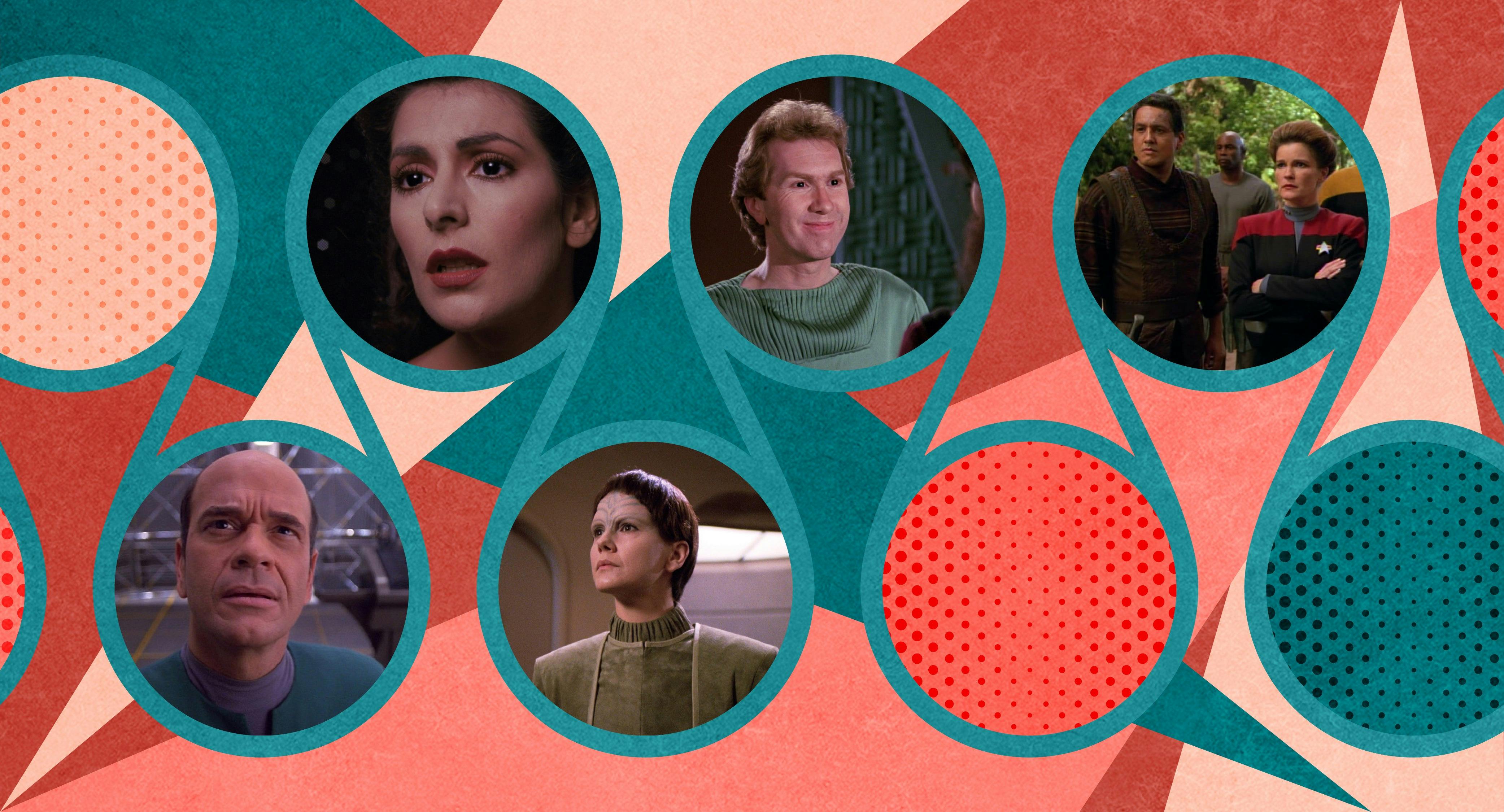
StarTrek.com
Ask anyone about an autism relevant Trek character, and the answer is usually Mr. Spock. Some fans will also often cite characters like Data, Seven of Nine, Barclay, and Sylvia Tilly as having stereotypically autistic characteristics. However, as an autistic person myself, I have found some surprisingly relevant episodes with other characters not normally thought of as Autism-coded, including two series regulars, two guests, and one entire away team! These following five episodes all raise subjects which are very much part of my authentic autistic experience.
"The Loss" (TNG) — Deanna Troi experiences a literal lack of empathy
Star Trek: The Next Generation — Literal Lack of Empathy
"You're a projection, with no more substance to me than a character on the holodeck."— Deanna Troi, to Riker
TNG's half Betazoid Counselor, Deanna Troi, is certainly not the first character you would associate with autism. After all, she is deeply intuitive, and fully in touch with the emotions. Indeed, she is a literal empath, able to read others' emotions telepathically.
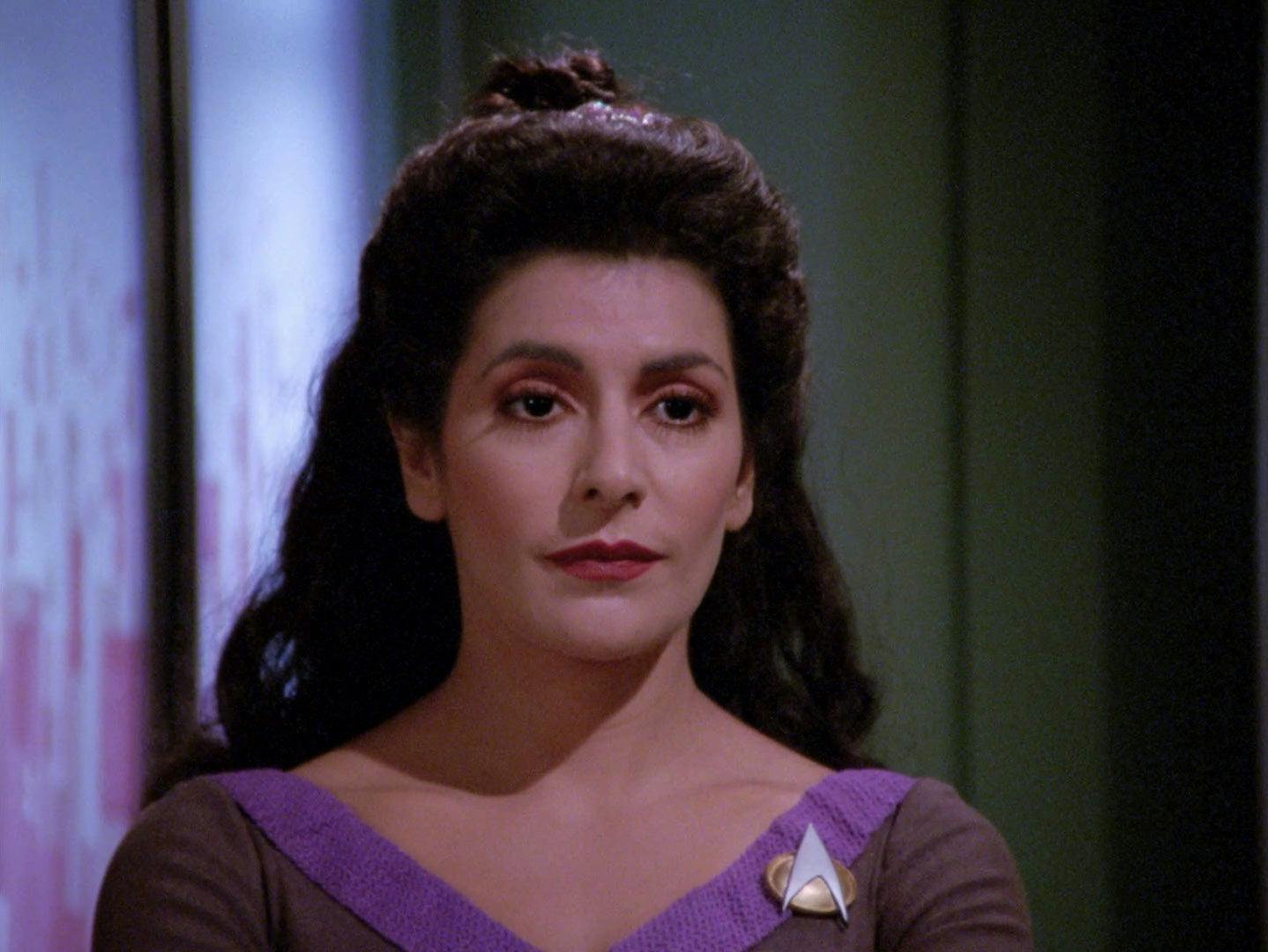
StarTrek.com
Except when she can't, which is exactly what happens in "The Loss". Having been able to sense other minds nearly all her life, she does not instinctively relate to, or even register the presence of, other people; without that sense it is like they are not there, even when they are in front of her. Every task, especially her work as a counselor, becomes significantly harder for her, as she has to use her conscious mind to make up for the lack of empathy-guiding intuition. She expresses amazement that humans can go through their entire lives without such a sense.
As I do. I have very poor 'theory of mind' — i.e. the normal intuitive instincts that the people around me have regarding other people. I can have trouble registering the difference between a human and an inanimate object, and often pay more attention to objects than people (some autistics have more trouble with that one). I don't instinctively see the emotional cues of others. I have to learn to recognize faces (for me, Star Trek's color-coded uniforms are a godsend for character recognition). I have great trouble understanding others' emotions, especially when they differ from my own. Even without her empathic ability, Troi still shows a lot more intuitive understanding of others than I have! With the loss of her power in “The Loss,” she is given a glimpse of what it's like to be a normal human.
Now, believe it or not, I myself always feel as if I am a normal human. To me, nearly everyone else appears to be as superhuman as Troi is!
"Tin Man" (TNG) — Tam Elbrun experiences sensory overload
Star Trek: The Next Generation — Tam Elbrun Experiences Sensory Overload
"There are too many minds. I can't shut them out... It's like a tide that never ebbs. I could drown!" — Tam Elbrun
I suppose most of us will wish we had some telepathic ability. But what if we had too much? In “Tin Man,” the Enterprise is given the services of Tam Elbrun, a famed Betazoid telepath. But Elbrun has problems. Troi knew him, not as a colleague, but as a patient. He hates formalities, interrupts and talks over everyone, paces around, and covers his face. The reason: he was born with this telepathic ability permanently 'switched on', and hears everyone's thoughts, all the time, unfiltered. This gives him amazing communication abilities, but completely overwhelms him. It can also be dangerously distracting, like in a past incident where his struggle to communicate with his captain led to 47 deaths.
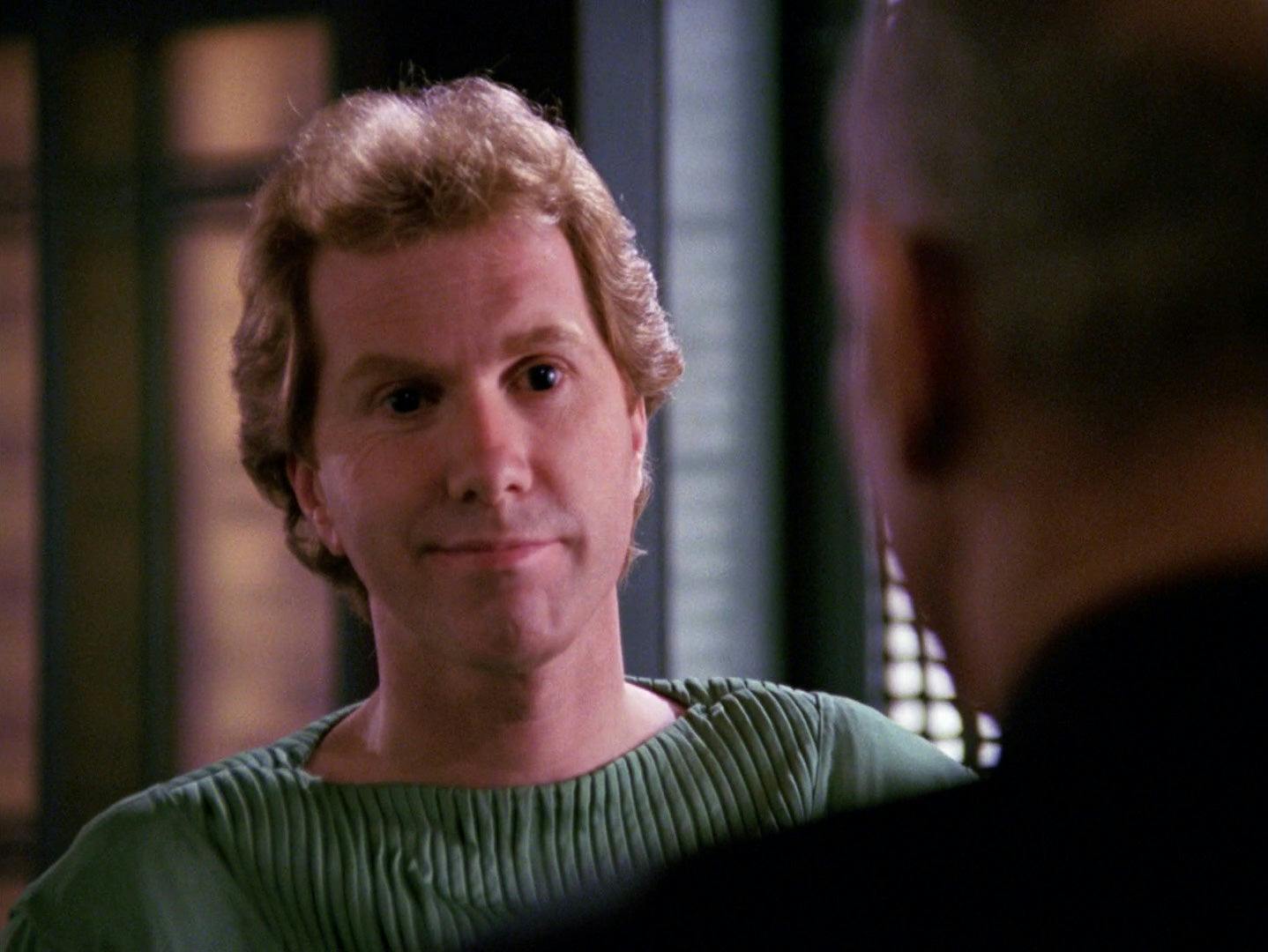
StarTrek.com
All of this, I can identify with. Although I am not telepathic, my own five senses are more than enough, as I am not as able as most others to filter out external stimuli. Some Star Trek episodes are still too much for me, but even they can't compare with what the real world can offer.
Crowds in confined spaces are particularly bad, as I cannot consciously filter out their voices. Instead, I automatically try to pick them all out, while also taking in every single detail I can see (and you wonder why Tam Elbrun keeps covering his face and looking away!). When Tam Elbrun is asked a question, he will either answer late, or before the question is even asked! This is actually how I tend to respond. If I know the subject of conversation, I might rudely interrupt and dominate. If I get an unexpected question (which happens to me more often than it did to him!), I am likely to respond late, as I still have to process all other stimuli beforehand. If there are too many stimuli, I might actually miss something vital, as my senses are already processing too much. In Tam Elbrun's case, this led to a disaster that people still blame him for. Tam Elbrun may appear to be the most fragile person on board. In truth, no one else is facing anything remotely like what he faces all the time. I think he is the strongest person on board.
"The Outcast" (TNG) — Soren experiences the fear of being ‘cured’
Star Trek: The Next Generation — Soren Experiences The Fear of Being Cured
"I do not need to be cured." — Soren
This was TNG's first attempt to directly tackle LGBTQ issues. Soren, a member of the androgynous J'naii species, reveals that she identifies as female. Her own people chase her down, and try to 'cure' her in order to make her fit in with their norms.

StarTrek.com
The part relevant to me is the fear of actually being 'cured' involuntarily. Despite the fact that homosexuality is not a disease, ignorant people have long tried to push ‘cures’ on members of the LGBTQ+ community. This also happens to people who are disabled or who are neurodivergent, as I am. There are still people and well-funded campaign groups who advocate 'curing' autism. While I need support and understanding, I don't want to be cured of my condition. For me, being autistic is normal.
"Latent Image" (VOY) — The Doctor experiences feedback loops
Star Trek: Voyager — The Doctor Experiences Feedback Loops
"Why did she have to die?! Why did I kill her?! Why did I decide to kill her?! Why?! Somebody tell me why!" — The Doctor, escalating alarmingly.
My favorite AI character in all of Star Trek is also probably the least logical: Voyager's Emergency Medical Holographic Program. Unlike many science fiction AI characters, he was not created to be perfect or superhuman. He is an experimental untested program, still full of bugs, who is given a task far beyond what he was programmed for, with no access to Starfleet updates. Notably, being created too closely in the image of his programmer gives him an obnoxious personality which isn't even his fault.
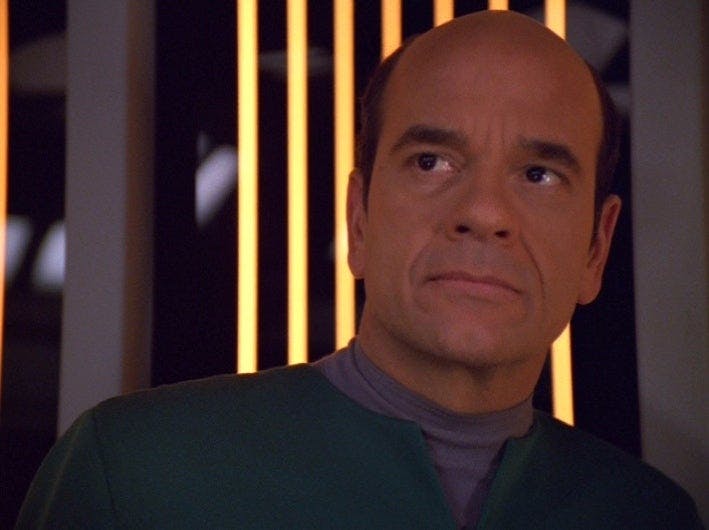
StarTrek.com
There are also scenarios that were not considered in its programming. In "Latent Image", he is faced with a situation he wasn't programmed to handle; he is able to save just one of two patients, each with an equal chance of survival. While he is able to make the choice, his rigid programming logic cannot handle the aftermath, leading to a worsening 'feedback loop' as aspects of this program work against each other, leading to an obsessive fixation on his guilt with no resolution.
Fortunately, I myself have never had to make a literal life or death decision like that. Obsessive "feedback loops", however, are very much part of the way my mind works (or doesn't). Indeed, right now I am in the midst of one, over a ridiculously trivial subject which I will not disclose here. By the time you read this, I may be in the midst of another one! The real world just does not make sense to me, and trying to work out everything logically can be paralyzing. In this and many other things, it's as if I was, like the EMH, not adequately programmed to face the world I live in, or even my own emotions (unlike many AI characters, the EMH clearly has emotions, possibly based on the troubled emotions of his creator). In TOS, Kirk was famous for his ability to use logic bombs to talk computers to death. Only in Voyager was it properly acknowledged that such advanced computers might have emotions, a bit like logic driven Vulcans – or autistics.
"Caretaker" (VOY) — Everyone but Kes learns to communicate
Star Trek: Voyager — Communication
"They can't speak telepathically, Toscat. Please talk aloud." — Kes
A short exchange in part two of Caretaker highlights a subject whose implications are rarely grasped, even in Star Trek; how can a human fit into a world full of telepaths. Fortunately, the Ocampa are one of the most gentle and understanding races in all of Star Trek, and surprisingly accommodating. One exception is a leader called Toscat, who uses his telepathic ability to talk to Kes over literally all the visitors. When Kes calls him out on this, he responds with "I didn't mean to be rude," though he continues to look down on the visitors for not understanding the way of the Caretaker like an Ocampan would. It is Kes, who actually has more faith in the telepathic abilities, who speaks up for those who lack them.
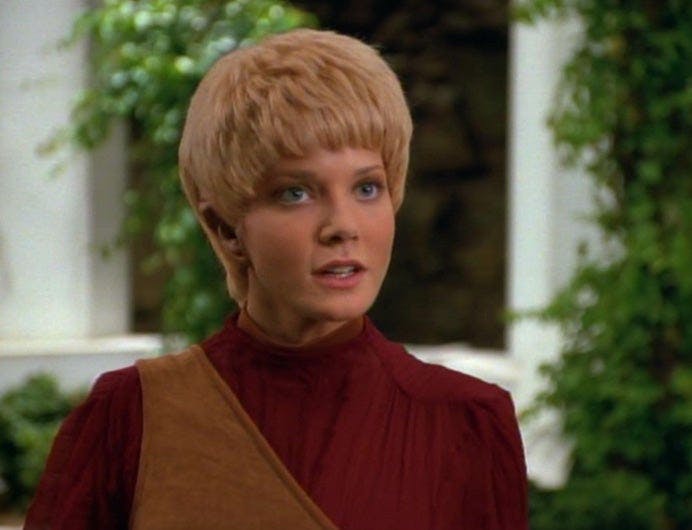
StarTrek.com
As I have previously said, I cannot pick up social cues. I don't know exactly how this works, but most people seem to have the kind of instinctive intuitive understanding that allows them to speak without words, or with very few words. People are bewildered when I don't instinctively understand what they are trying to communicate. Some can be like Toscat, using their intuitive abilities to speak over me, but also being frustrated that I don't just 'know' what they do. I don't think many of you would like the idea of being the only human on a world full of telepaths, who it is likely would communicate mainly through their thoughts, and would barely notice you except when you frustrate them. That's what it's like for me.
Then again, some of us would wish that other people could read minds. Then, they might understand what it's like for a Betazoid with too little empathy (or too much), a hologram whose programming cannot deal with his situation, or a cisgendered J'anii. Or an autistic person. Of all the frustrations my condition brings, probably the biggest one is the loneliness that comes with not understanding others or being understood by them. I hope these examples of parallel experiences in AIs, aliens, and humans among aliens might give a bit of insight into the kind of feelings I always struggle to communicate.
Matthew Longstaff (he/him) is 35 year old high functioning autistic Star Trek fan living in Middlesbrough, North-East England. Apart from Star Trek, his interests include other science fiction, photography, Lego, railways, aircraft, and cars (though he can't drive). Follow him on Instagram @1980something_matt!

